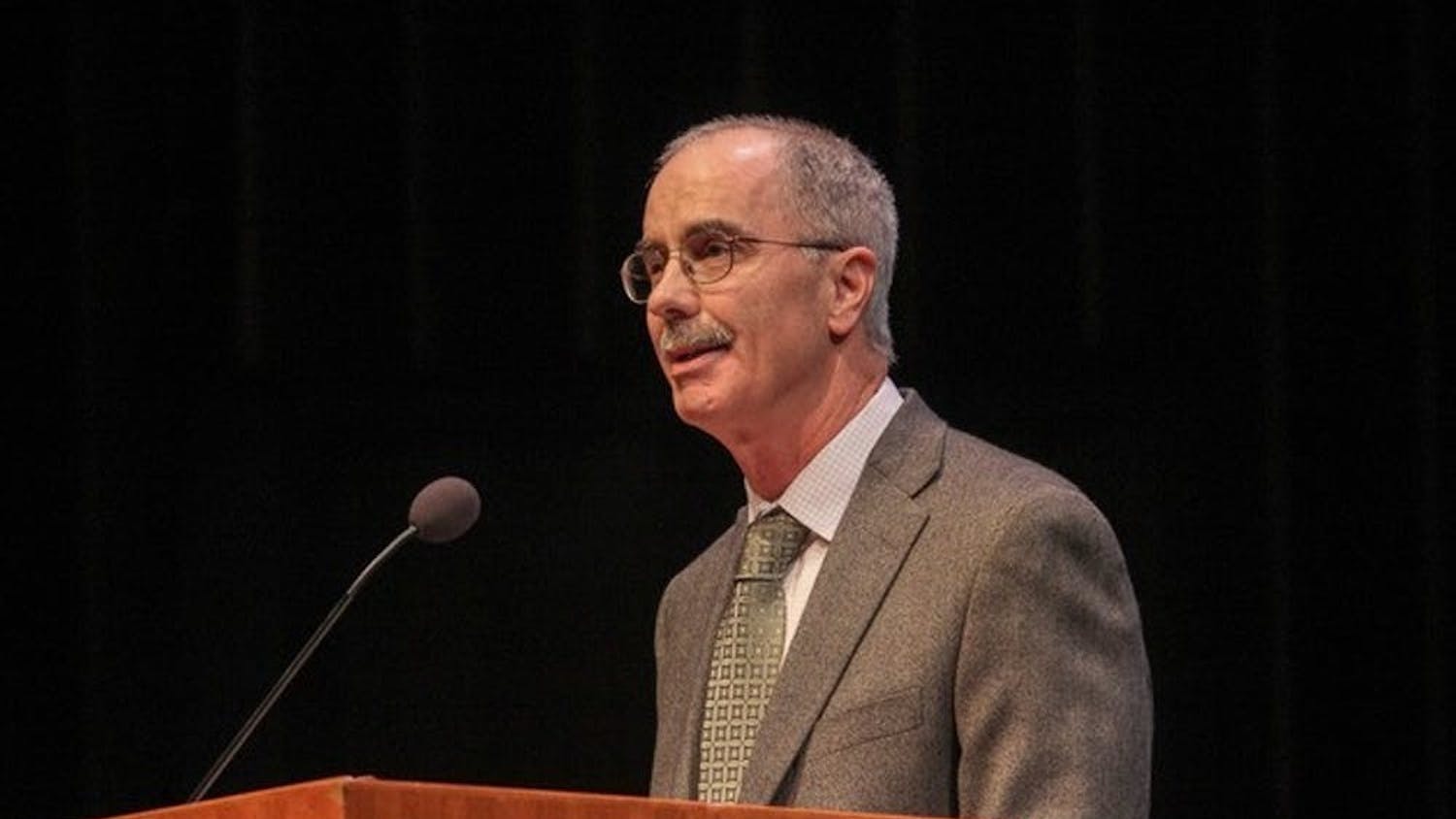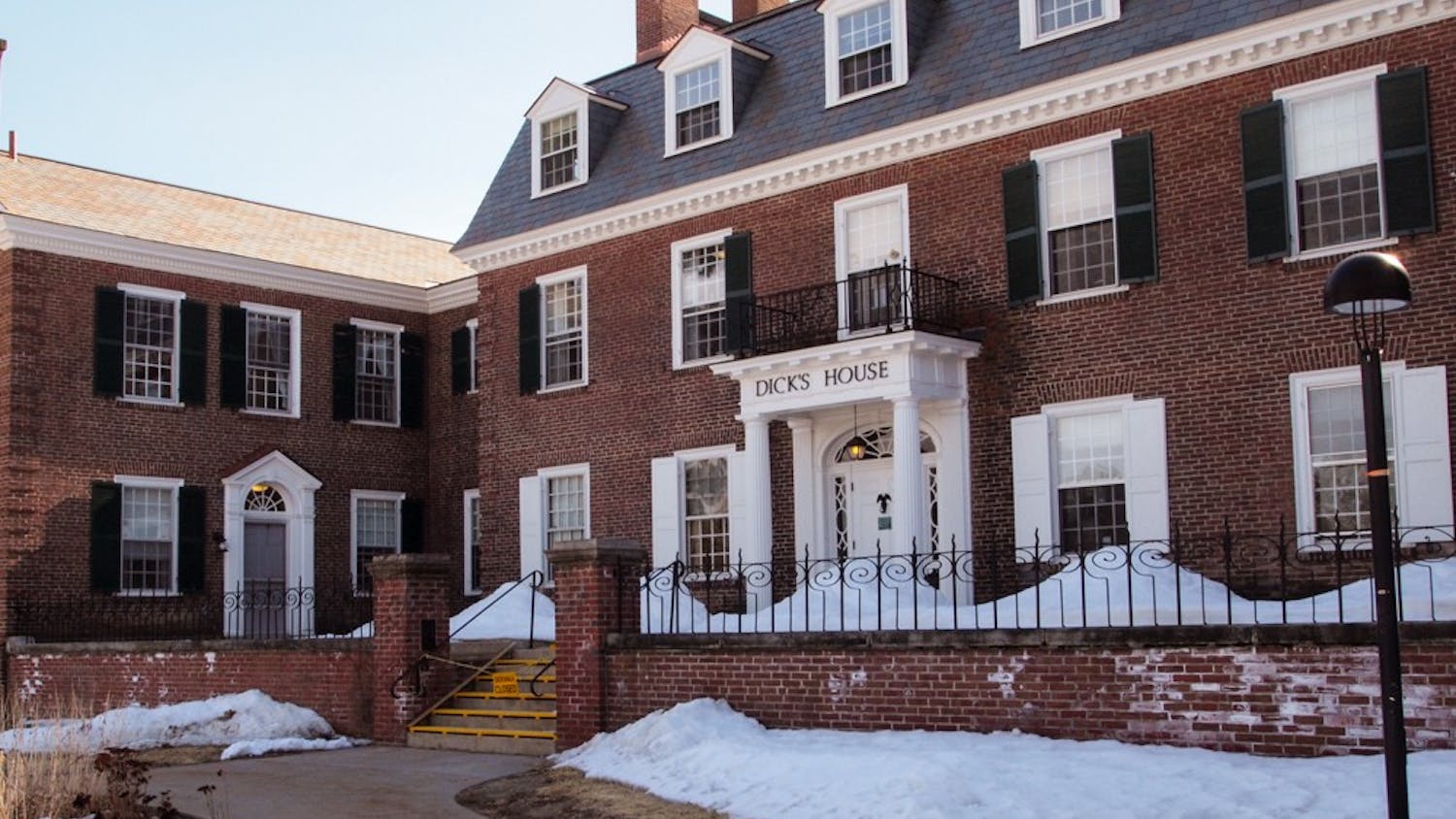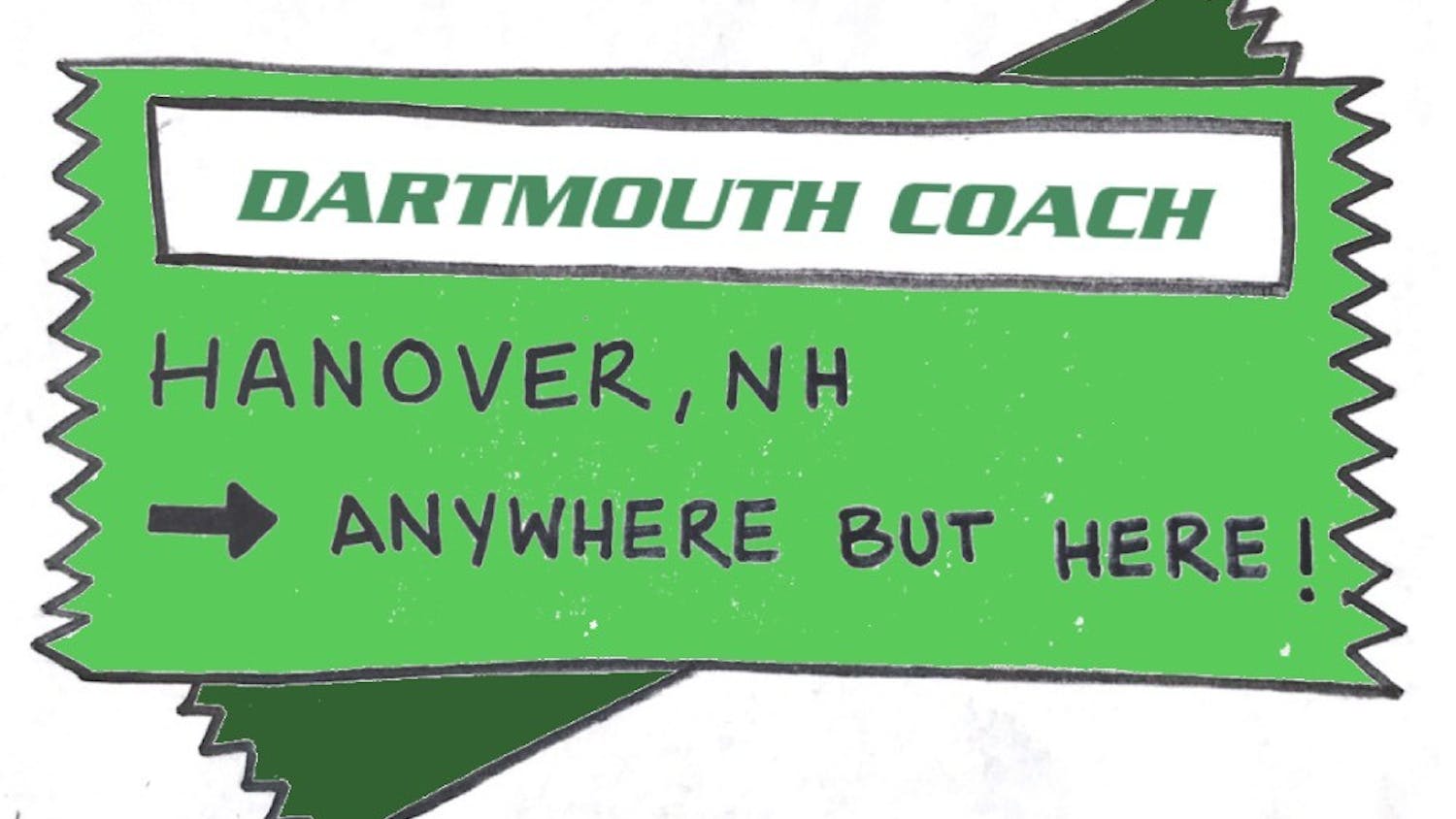This column is featured in the 2020 Commencement special issue.
As the days blur together, Dartmouth seems much farther away than it actually is, even on a day like today: graduation. Juxtaposed against the debilitating realities we face, the idealistic, privileged place that college is turns into a dream land I once had the chance to visit, but will never really return to in the same way again.
In some ways, otherworldliness is the best way I can describe college right now. The feeling I got being in Baker-Berry Library sums this up best. To walk into its bright, checkered lobby was to enter a busy hub, where chairs and tables scraped across the floor as they were merged to make room for more; where everything from the book you were reading to the screen of your laptop was covered by big, sun-soaked windows; and where passersby rushed through to get to the next thing. The further you went into the library, the closer you got to where the books were — where knowledge itself seemed to congregate and make itself available to anyone who walked through those heavy front doors. And more often than not, you’d run into someone you knew doing the same thing you were: studying (or at least trying to) and enjoying what it meant to be young, struggling and learning in that moment.
This feeling filled every corner of campus for me. It was in classrooms where I learned the words for concepts I could have never articulated on my own and got a glimpse of the leading ideas of our time. It was in organizations that let me see more of nature and learn about war and peace; in research labs that brought me closer to practice than theory; and in teams where I learned alongside my peers how to be better writers, advocates, mentors, believers and allies. It seemed like all I was expected to do was be young, struggle and learn.
But here we are now, in such different circumstances. Some are back home, confronting what it means to be in that space again, while others don’t have stable places to live at all. The same college I knew feels distant as I put “learning” on the backburner and focus instead on what is happening around and to us. “They were laid off from full-time jobs, but made too little to get unemployment.” “Domestic abuse rises worldwide.” “Fear sent her Chinatown restaurant spiraling.” “COVID-19 took Black lives first.” That, and over 400,000 dead worldwide. And on top of that: “8 Minutes and 46 Seconds: How George Floyd was killed in police custody.” “I can’t breathe: braving tear gas in a pandemic.”
It’s true that you could call this an abrupt shift in worlds — many of us went from plans to savor every moment of one last spring on campus to ending up back in our childhood bedrooms. After graduation, we will end up being comparatively disadvantaged right out of college, at historic levels. And the force with which the problems in our world have collided together makes me realize that this world is even more broken, fragile and inequitable than the one I thought I had studied in books for the past four years.
But as I’ve been reminded again and again these past few months, the world of college and the world I see now shouldn’t seem that much different at all. Because for all the ways campus felt like a fortress hidden deep in the woods, it was never impenetrable to the outside world, nor was it internally perfect. And for all the ways I thrived in a system that advantaged me because of my race and background, I recall how often it disadvantaged and traumatized others. I don’t need to look at the current state of affairs to know that the world is even more broken, fragile and inequitable than the one I studied — all I need is to look at the world that existed on campus.
Our campus was where people were sexually abused by powerful professors and our own peers. It was where people of color, people of different gender identities and people with disabilities had to fight for their right to take up space. Where some had to work multiple jobs on top of being a student to support their families back at home, or to even just get by on campus. Where to be young, struggle and learn was a luxury more than it was an equalizer.
It was where we called on the administration to protect our classmates against the threat of deportation and demanded more equitable resources to meet a growing mental health crisis. It was also where we experienced racist and sexist vandalism in students’ places of living, and heard our own classmates use slurs against Black people as if it was nothing. Where financial disparity was so large that some of our friends had to leave the College, and those who stayed faced food insecurity, inaccessibility and stigma every day. We even sheltered in place during an active shooting. Dartmouth, too, is a site of the problems it seeks to alleviate through scholarship and study. It is a site of systematic inequality, unexpected ambushes, endless shortcomings and hypocrisy.
Remembering that this was equally a part of “the college experience” makes college as a concept seem less otherworldly than originally thought. Because so much of what occurred on campus is what occurs regularly, on a larger scale in our world. And it is what has occurred for many years, prior to the "crises" we are so consumed by now.
Remembering that these were the features of our college experience, and the experience of students across almost every college campus, is what really should unite the Class of 2020. What unites us is not that we happen to all be graduating in the midst of a pandemic, but that our circumstances require us to draw on our own experiences with these same problems and act on them. Because it might actually take a national "crisis" or two to get us to realize that the world requires us to address these problems in the same ways we did on campus: with outrage, empathy, zealousness, boldness, indignation and persistence. And with new approaches, fresh ideas and by making our own sources of meaning.
Because regardless of whether or not these circumstances occurred, we would’ve had to ask ourselves as we stepped away: Are we going to leave behind how it felt when we were struggling with one another and learned beyond what we were expecting to learn? Are we going to forget how we tried to confront these realities, and also forget what it felt like when we failed? What we promised ourselves we’d do the next chance we got? As graduates of pandemic, I think the answer is handed right to us — etched into our diplomas, woven into our caps and gowns and wrapped into the congratulations and the goodbyes. This world is ours: to mourn, dismantle, rebuild, reconnect, destroy, rebuild and rebuild again.
Debora Hyemin Han ’20 is the former editor-in-chief of The Dartmouth.




